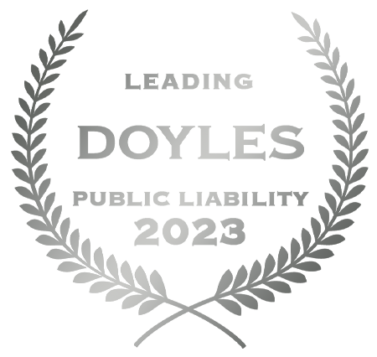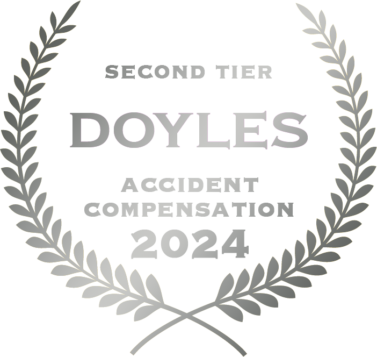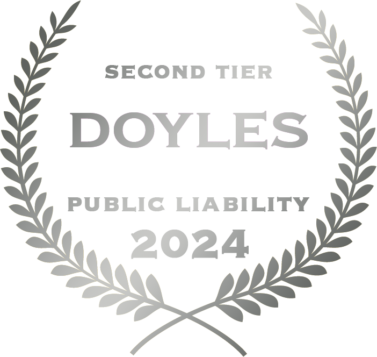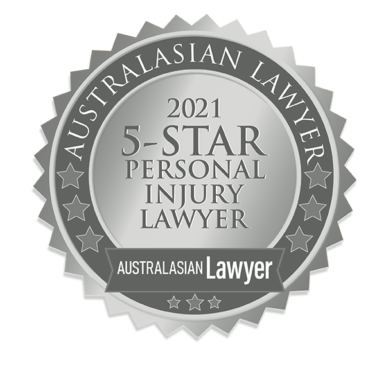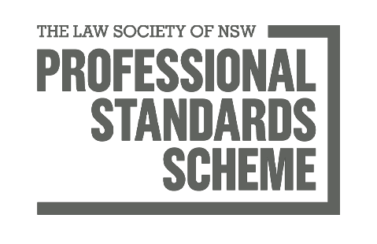
How to claim medical negligence – Your guide.

Making a medical negligence claim or suing a hospital can be daunting. But when you’re injured or ill because of medical negligence, it can have a big impact on your life and your family, and it can create significant financial stress.
Medical negligence payouts in Australia can be substantial, with some running into millions of dollars. They can be a real lifeline, allowing you to get the support, treatment, and financial relief you need to recover.
In this article we demystify the medical negligence claims process and show that with the right help you can claim everything you’re entitled to at no cost to you.
Quick links
- Making a Medical Negligence Claim
- Suing a Hospital for Negligence
- Other Examples of Medical Negligence
- Getting Help with your Medical Negligence Claim
What is medical negligence?
Medical negligence (also known as medical malpractice) is when a medical professional’s behaviour doesn’t meet the appropriate standard of care, and the patient suffers injury or loss. There must be a duty in the circumstance for the medical professional to take care of the patient, known as “duty of care”. If this duty is breached, then the patient may be entitled to claim medical negligence compensation.
What is an example of medical negligence?
An example of medical negligence is this case involving a delayed diagnosis of Appendicitis, which resulted in a payout of $750k.
This patient went to her doctor with abdominal pain and was incorrectly diagnosed as having an ovarian cyst. She was subsequently admitted to hospital and discharged 24 hours later, once again without a correct diagnosis. She was eventually diagnosed with a ruptured appendix seven days after her initial examination. As a result, she has suffered long-term physical and psychological issues, which could have been avoided had the diagnosis not been delayed.
This is an example of misdiagnosis/ delayed diagnosis, which is a common type of claim. Other common medical negligence claims include:
- Hospital negligence claims
- Surgical negligence claims
- Negligent treatment by a doctor
- Nursing negligence claims
- Dental negligence claims
- Cosmetic surgery claims
- Claims for birth injuries to mothers and babies
Start your free claim check now.
Simply answer these three questions to get started:
What do you do if you suspect medical negligence?
Medical negligence claims are complex and can be difficult to prove. They’re not something you should attempt to pursue on your own, but it’s relatively easy to find out if you have a strong claim.
The first step is to speak to a medical negligence lawyer and get some advice. It’s important to speak the right lawyer, as many personal injury lawyers take on a range of claims such as work injury claims, and car accident claims as well as medical negligence claims. Medical negligence is a very specialised area of personal injury law that requires the ability to work closely with medical specialists and a build strong case for your claim. To make sure you’re getting the best possible legal advice, speak to a lawyer who only does medical negligence claims, and has a strong track record of success in this area.
Before you make a claim for medical negligence.
A specialist medical negligence lawyer will generally give you an initial consultation for free, but you should make sure your appointment is with the lawyer who would be handling your claim if it goes ahead. During this meeting the lawyer will assess your situation and provide their opinion on whether your negligence claim is likely to succeed. If the lawyer thinks you have a claim, it’s likely he or she will need to consult with one or more medical experts to confirm the likelihood of success. If the firm does take on your case, they’ll need a report from a medical expert as part of the evidence to support your negligence claim.
- At this stage it’s very difficult to estimate how much compensation you’re likely to receive, but ask the lawyer to give you a breakdown of the entitlements you may be eligible for
- Ask them to confirm what sort of fees you’ll need to pay
- Most firms will offer to take on your claim on a “no win no fee” basis, but look closely at the costs agreement
- Ask the firm to put a cap on its fees to avoid any nasty surprises at the end of the claim
Who can make medical negligence claims?
It’s possible you can claim medical negligence compensation if you answer ‘yes’ to these three questions:
- Did you suffer injury or loss as a result of your medical treatment?
- Was the treatment below the standard of care and skill that a reasonable professional would have provided in the same circumstances?
- Would your injury or loss have been avoided if your care had been appropriate?
What happens in medical negligence claims?
Here’s an overview of what happens when you claim medical negligence.
Your medical negligence lawyer will engage one or more medical experts who have experience in the field of medical negligence to carry out assessments, review your medical records and provide a report detailing how your treatment was negligent.
Your lawyer will manage this process for you, and if they’ve taken your case on a “no win no fee” basis they’ll cover the medical experts’ costs, so you shouldn’t have to pay anything out of your own pocket.
Building the evidence to support your medical negligence claim can take some time, especially if your injuries have not yet stabilised. Once your injuries have stabilised your legal team can put together a claim that takes into account all aspects of your injuries and losses.
medical negligence claims are resolved at this stage and a settlement (ie a medical negligence payout) is agreed upon. In the minority of cases where a settlement isn’t reached, your lawyer will advise you about taking your claim to court to pursue compensation.
How much are medical negligence payouts in Australia worth?
Medical negligence payouts in Australia range from tens of thousands of dollars to millions of dollars. Depending on the severity of your injuries, the total compensation amount can include:
- Lost income – the amount of income you’ve lost through time off work
- Medical expenses – resulting from your injuries
- Travel expenses – to and from medical appointments and treatment
- Domestic assistance – the cost of getting help with home duties
- Pain and suffering – an amount to compensate you for your pain and suffering, based on the extent of your injuries
- Future losses – for example, your future earnings that you will miss out on as a result of your injuries
For more information and payout examples, read our Guide to Medical Negligence Payouts.
How long do I have to make a medical negligence claim?
You must lodge your “initiating claim” within three years from the date of injury or diagnosis. However, this period can be extended for children and people with disabilities. If you’ve exceeded a time limitation, time extensions might be available to you, so you should speak with a specialist medical negligence lawyer who can provide you with advice on your situation.
How long do medical negligence claims take to settle?
Medical negligence claims in Australia often take years to settle. This is because claims can be complex, and it may be necessary to wait for injuries to stabilise before a claim can be made.
However, it’s possible for claims to settle in a shorter timeframe if injuries have stabilised and there’s clear evidence of medical negligence, or if your circumstances require a more urgent settlement.
How do I prove medical negligence?
To prove medical negligence, you need to prove that the medical practitioner or facility had a duty of care, and that duty was breached. Or, looking at it another way, you need to prove that the treatment was below the standard of care and skill that a reasonable professional would have provided in the same circumstances. You also need to prove that your injury would have been avoided if your care had been appropriate.
To provide this proof, you’ll need to have a thorough assessment conducted by a medical expert that concludes the practitioner was negligent.
Medical law is a complex field, however, a specialist medical negligence lawyer will engage the relevant medical experts on your behalf to prepare your evidence and manage your claim.
Call 13 15 15 or chat to us now for free advice
Chat nowFind out how much you can claim.
Get startedSuing hospital for negligence.

Can I sue a hospital for negligence in Australia?
Yes – you can sue a hospital for negligence if you can show that the hospital breached its duty of care to you, and you suffered injury or loss. But depending on the circumstances, it’s possible that the hospital may not have been directly liable, and it’s staff were. It’s also possible that a breach of duty by a doctor in a hospital could result in a medical negligence claim against both the doctor and the hospital.
How do you sue a hospital for negligence?
In most cases you don’t need to sue the hospital for negligence – you can simply make a claim against the hospital’s medical negligence insurer. If you have a strong claim and the insurer accepts it, then it’s likely that your claim will be settled by way of mediation, where all parties agree on a settlement payment to you. However, if mediation fails, then your claim may need to proceed to a hearing to claim compensation for medical negligence.
So on the question of how to sue a hospital in Australia – it’s vital that you have an experienced, specialist medical negligence lawyer putting together your claim for you and giving you expert advice on how to proceed with your claim.
Pursuing legal action can be risky and potentially costly, however a “no win no fee” medical negligence lawyer may take on your case and fund it for you if they’re confident of succeeding.
What is negligence during an operation?
Many cases of suing hospitals for negligence in Australia result from negligence during an operation. This is when medical treatment falls below the expected standard of care, and a surgical error was a preventable complication or there were errors or outcomes beyond the known inherent risks of the surgery.
The fact that a surgical error has occurred doesn’t necessarily mean that a surgeon or specialist was negligent. However, in most surgical error cases, it’s relatively straightforward to establish whether there’s a negligence claim.
Surgical errors and mistakes can lead to a variety of consequences, leaving the patient with longstanding disabilities from:
- Injury or damage to nerves or vascular structures
- Anaesthetic complications
- Bowel and bladder perforations
- Injury and damage to surrounding tissue and organs
- Performance of incisions at the wrong locations
- Carrying out the wrong procedure and operating on the wrong body part or patient
- Leaving surgical equipment inside the patient
What is an example of nursing negligence?
Negligence in nursing is another situation that can lead to suing a hospital for negligence. It occurs when a nurse fails to adequately complete his or her clinical tasks, resulting in harm to the patient.
Examples of negligence in nursing include:
- Improper patient monitoring
- Failure to call for a doctor where assistance is required
- Not properly checking equipment
- Failure to follow procedures or errors in procedures like inserting IV lines
- Administering the wrong medication or a wrong dosage
- Failure to communicate clearly and care for the patient
What is failure to “warn” and “informed consent”?
Before a patient agrees to undergo medical treatment or a surgical or cosmetic procedure, the medical practitioner must warn the patient about the risks to ensure that the patient has given his or her informed consent. The law imposes this duty on medical practitioners in addition to the medical practitioner’s duty to exercise reasonable skill and care in providing or administering medical treatment.
Informed consent may require the medical practitioner to provide advice and disclose information about his or her experience and ability to perform a particular surgical procedure. It may also require advice on the detriments of not undergoing a particular treatment, the seriousness or nature of a particular injury or condition and any implications of not having prompt and timely treatment.
Failure to warn and informed consent are the basis for a significant number of people suing a hospital for negligence in Australia.
Call 13 15 15 or chat to us now for free advice
Chat nowFind out how much you can claim.
Get startedOther examples of negligence.

Medical negligence claims can result from a range of situations – here are some common examples:
Medical misdiagnosis.
The area of misdiagnosis and delayed diagnosis of an injury, illness or a medical condition forms a large part of medical negligence claims in Australia against general practitioners, specialists, hospitals and hospital emergency departments. It usually involves actions or inactions that lead to delays in administration of appropriate and timely treatment, or administration of incorrect treatment or no treatment at all.
Plastic or cosmetic surgery.
Cosmetic surgery has become increasingly common in Australia, whether it’s done for cosmetic reasons to improve your appearance or as part of treatment for an injury or illness. It’s also one of the most unregulated areas of treatment, as thousands of Australians every year go under the knife in the hands of so-called “cosmetic” surgeons who often don’t have specialised plastic surgery training equivalent to that of qualified plastic surgeons. But even procedures performed by highly qualified plastic and reconstructive surgeons can result in poor surgical outcomes and the need to undergo further corrective surgery.
Nervous shock claims.
Medical negligence nervous shock claims are made by close family members of the victim of medical negligence who was either killed, injured, or put in peril as a result of the negligence of a medical practitioner.
Birth injury defects.
If a birth injury or defect could have been prevented by the treating medical practitioner by exercising reasonable skill and care, then it may qualify for a medical negligence claim.
Dental negligence.
Dental and orthodontic practitioners and surgeons owe the same duty of care as any other medical professional and must exercise reasonable skill and care in providing treatment and advice to their patients. If they fail in their duty of care and this results in injury, then the patient may be able to claim compensation.
Getting help with your negligence claim.

How does no win no fee work?
A no win no fee medical negligence lawyer offers to run your case for you and only get paid when you win. If you choose the right lawyer, it’s an excellent option that allows you to pursue your claim without any risk, but it’s important to check the lawyer’s costs agreement to fully understand what’s covered. With some no win no fee lawyers you can still end up having to pay thousands of dollars in disbursements if your case is unsuccessful. This is because their no win no fee agreements cover their professional fees but not the costs they incur. At Law Partners, our no win no fee, no disbursements guarantee covers all our costs and disbursements as well as our professional fees, so you can pursue your claim with peace of mind.
Suing hospitals for negligence seems like a big decision. Should I do it?
Remember that when you claim compensation, you’re seeking a settlement from the insurer of the hospital or specialist to compensate you for your losses. It’s a settlement you’re entitled to claim if you’ve been harmed through negligence.
If you’re having trouble deciding, you’re welcome to simply call one of medical negligence lawyers and have a confidential conversation. There’s no pressure or obligation to proceed with a claim if you’re not ready, and we’ll always be here if you need us.
Related articles.
Do I have a case?
Our senior lawyers will assess your case for free.



